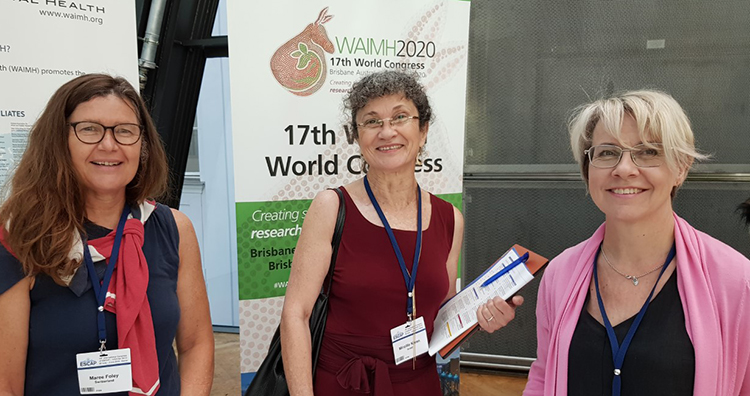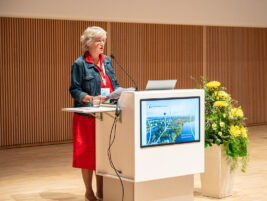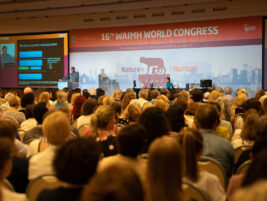In June 2019, WAIMH was represented at the European Society for Child and Adolescent Psychiatry (ESCAP) conference in Vienna, Austria. It was the 18th International Congress of ESCAP with a theme of: Developmental psychiatry in a globalized world.

There were three WAIMH focused activities during this conference:
- A daily WAIMH promotion stand and promotion of the WAIMH Congress in Brisbane, June 2020 (Minna Sorsa and Sari Miettinen);
- A Perspectives administration meeting (Maree Foley, Kaija Puura, Miri Keren, Deborah Weatherston (via skype), Hi Fitzgerald (via skype), Minna Sorsa and Sari Miettinen); and
- A WAIMH invited symposium (Miri Keren and Kaija Puura).
The WAIMH Invited Symposium was titled: Premature babies at the NICU: The interface between pediatrics and infant psychiatry. It was chaired by Miri Keren (past president of WAIMH). The symposium was very well attended with standing room only. The participants were very engaged throughout the symposium as illustrated by their sustained attention, presence, and thoughtful questions.
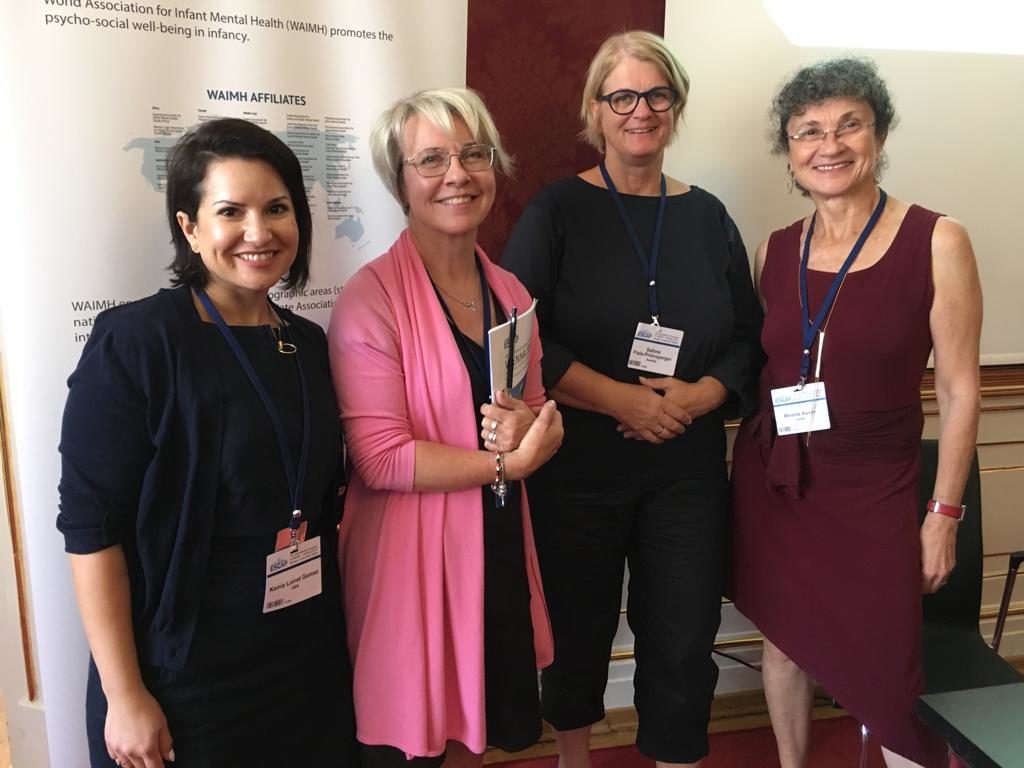
The symposium comprised four engaging papers. First a paper by Professor Kaija Puura (WAIMH Executive Director) from Tampere University Hospital, Tampere, Finland. Kaija’s paper, the Co-creation of family centered care for neonatal intensive care unit of Tampere University Hospital outlined a socratean oriented multi-disciplinary training project that was conducted with NICU staff. The training project aimed to, and successfully promoted good parent-infant interaction in the NICU; a shared space with infants, their families and NICU staff.
Second, a paper by Dr Miri Keren (WAIMH Past President) Assistant Clinical Professor at the Child and Adolescent Psychiatry department, Tel-Aviv, Israel. Miri’s paper, Detecting at risk mother-infants dyads at the NICU, illustrated the use of “The Clinical Interview for Parents of High-Risk Infants”, the CLIP interview. The CLIP interview is a useful tool to help assess traumatic experiences related to prematurity and to identify parents of premature babies who would benefit from further intervention towards and after their discharge, so as to promote and protect the parent-infant relationship following a traumatic start to their relationship.
For further enquiry about The Clip Interview see: Meyer, E., Zeanah, C., Boukydis C., & Lester, B. (2006). A clinical interview for parents of high-risk infants: Concept and applications. Infant Mental Health Journal. 14. 192 – 207.
The birth and hospitalization of a preterm infant are stressful and emotionally demanding experiences for parents. (CLIP) is a semi-structured clinical interview that may be used as a one-time assessment or as a cornerstone for ongoing psychosocial work with parents. The interview assesses early parental adaptation and alerts the clinician to areas of concern as identified by the parents. The interview enables parents to consolidate emotionally their experiences relative to the infant’s high-risk status. The CLIP has utility both for planning psychosocial care in the intensive care nursery, and for discharge preparation. The rationale underlying the design of the CLIP is presented, the interview is described, and clinical applications are discussed (Meyer, Zeanah, Boukydis & Lester, 2006, p. 192)
A third paper was presented by Assistant Professor Kenia Gomez (UMass Medical School, Pediatrics, Worcester, USA): Screening for maternal mental health in an outpatient interdisciplinary NICU (Newborn Intensive Care Unit) Follow-Up Clinic. Kenia reported on a project that involved an interdisciplinary outpatient NICU follow up clinic to screen for maternal depression in conjunction with providing medical and developmental evaluations of their infants. They found that parents of infants in the NICU experienced stigma and this inhibited them from seeking emotional and psychological help. Moving forward, an integrated approach to screening in mothers and parents of high-risk infants in the NICU offers a way to provide support and acceptance so as to decrease the potential experiences of stigma and increase help mental health seeking when needed.
A fourth paper was presented by Dr Sabine Fiala-Preinsperger (Child Psychiatrist), Mödling, Austria. Sabine presented a narrative based case study: It is never too early to talk with premature babies and their parents. In her paper she spoke from the perspective of the premature baby and the importance of engaging in meaningful conversation with voice, with the infant, in the presence of their parents. She showed a sensitivity to both the parents and the infant with regard to the context in which they were building their relationship; a neonatal unit in contrast to being in their own home. She describes this process in her abstract:
It is also necessary to help the parents looking at their baby and to tell the baby how exciting for mum and dad this moment is. Each step should become a little story by its own. You can tell the baby its own story, about the wish of the parents to have a baby and their longing to hold the baby into their arms. It is very helpful for mother and father to tell the baby everything that happens during the day and to mentalize the baby’s feelings (Fiala-Preinsperger, S., 2019).
Finally, full abstracts for each of these papers can be viewed in the ESCAP abstract book: https://www.escap.eu/bestanden/Vienna%20congress/abstractbook_escap2019.pdf
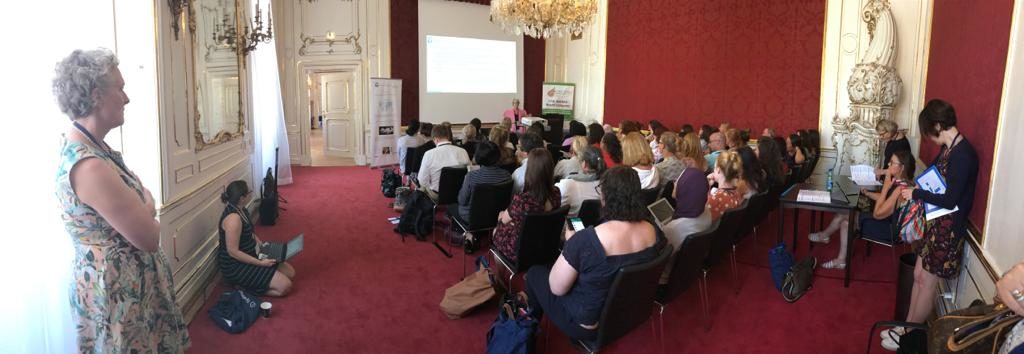
Authors
Maree Foley (Switzerland)


